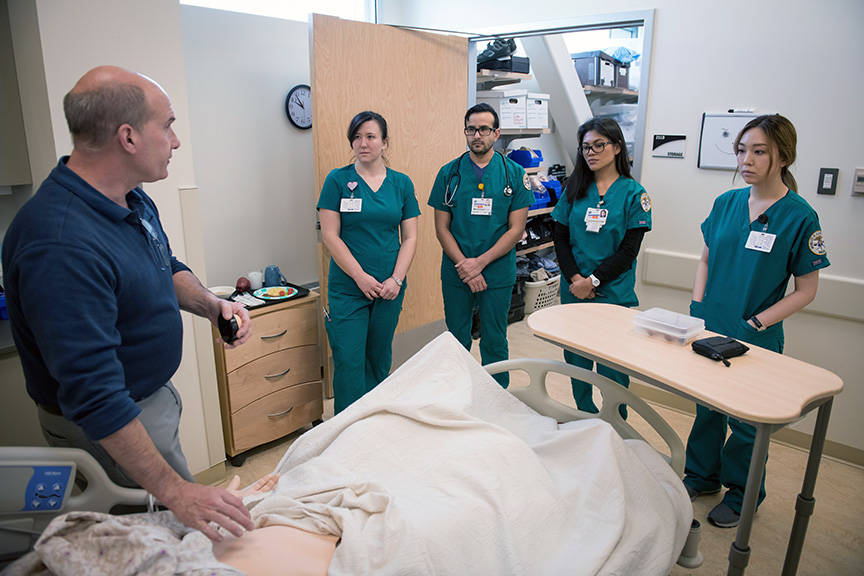Health insurance company Premera Blue Cross has pledged $5.7 million in grants to promote rural health care in Alaska.
“Rural clinicians often do not have the resources to provide (certain) services,” said Jeff Roe, president and CEO of Premera Blue Cross at a press conference in Anchorage Tuesday. “It is critical to invest in effective, long-term solutions to close the growing gap between urban and rural health care access.”
The money from Premera will be split between the Alaska Native Tribal Health Consortium (ANTHC), the University of Alaska Anchorage with a grant-making fund administered by the Rasmusen Foundation in partnership with the Alaska Community Foundation.
The grant-making fund, known as the Rural Health Care Fund, will receive $3 million, the largest portion of Premera’s pledged money. Grants ranging from $25,000 to $100,000 will be given to rural outpatients clinics, community health centers and hospitals for small capital improvement projects and medical equipment, according to Roe.
UAA will receive $1.77 million to expand its nursing programs at all four of its campuses. Grant money will be used to expand the university’s Recruitment and Retention of Alaska Natives into Nursing (RRANN) program in rural Alaska.
“By increasing the number of nursing students from rural Alaska communities,” UAA Chancellor Cathy Sandeen said at the press conference, “the university helps meet a demand for medical professionals who understand the unique health care needs of rural Alaska and have a desire to return home to their communities to practice.”
Sandeen said some of the money would be able to go the University of Alaska Southeast’s nursing lab at its Ketchikan campus.
In an email, UAS Chancellor Rick Caulfield said that UAA was the statewide leader in nursing but that “we work collaboratively with UAA partners in meeting the needs of health care employers in our region.”
Caulfield said that UAS provides training for certified nurse aides and other health care professionals at all three of its campuses.
$700,000 will go to ANTHC to build an Education and Development Center which will train health care workers in a variety of fields.
The free market is failing health care, doctor says.
“This generous gift from Premera further increases the Consortium‘s capacity to encourage our people to gain the skills and credentials required to support our communities in other critical ways,” said Andy Teuber, president and chairman of ANTHC. “Becoming behavioral, community and dental health aides. Each program offers Alaska Native centered learning, dedicated to expanding culturally appropriate health care at the village level.”
Alaska has the highest costs for health care in the country according to a 2018 report from the Institute of Social and Economic Research at UAA. Roe said at the press conference that expanding the reach of health care would help to reduce costs for everyone.
Part of Alaska’s high costs are driven by the need to attract health care workers from out of state, a process which requires expensive relocation costs and other benefit offerings.
“Health care costs in Alaska are the highest in the nation, and it’s more acute in rural communities,” Sandeen said. “Even for those workers who come up to Alaska and stay, they often lack the cultural awareness that makes them very effective in rural communities.
She said that training an Alaska-based work force would create health care workers better equipped to Alaska’s unique challenges.
“There’s nothing like a first-hand experience of seeing what these communities are like, makes our state unlike any other place in the United States,” Sandeen said.

